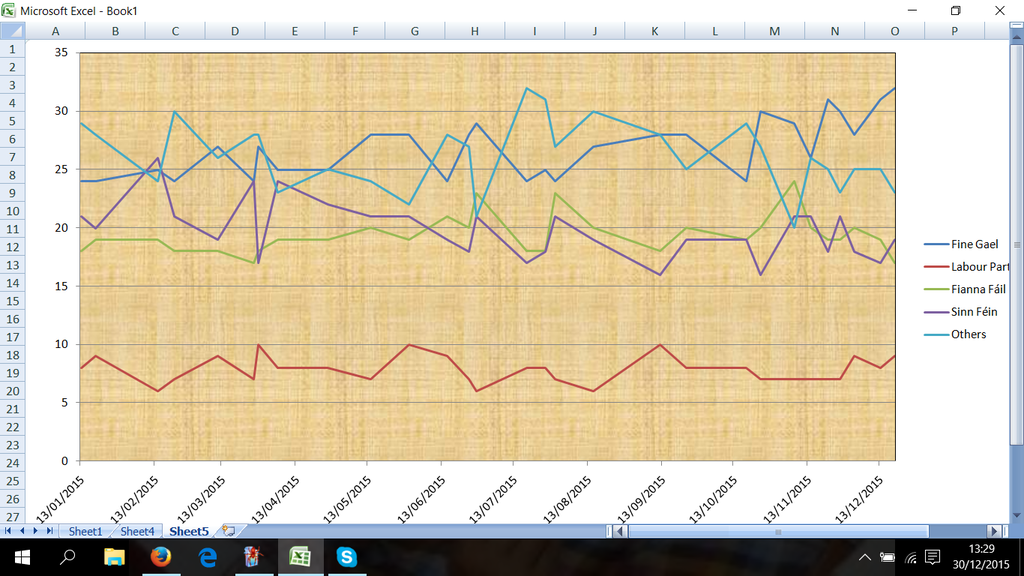The Irish General Election is expected to be called shortly for the end of February with the Government Parties of Fine Gael (Christian Democrat) and Labour (Socialist) fighting for re-election against Fianna Fail, Sinn Fein and a plethora of Independents and smaller parties who currently make up c. 20% of the seats in the Dail.
The election takes place against a backdrop of significant economic revival with growth for 2015 expected to come in at around 7% of GDP (by far the highest in Europe), unemployment declining from 15 to 9%, and the Debt/GDP ratio declining from a peak of over 120% to less than 100%.
Ordinarily, such a rapid turnaround in Ireland’s economic fortunes could be expected to result in a Government being returned to office, but there are also significant residues of resentment against the Government due to their policies of cutting public expenditure and introducing new taxes such as water charges, property taxes and universal social charges.
In addition, the recovery is still very Dublin centric with many of the more rural parts of the country feeling little benefit. Many families have suffered from unemployment, emigration, depressed wages, higher taxes, homelessness, negative equity and the threat of mortgage foreclosure. Many have also been effected by cuts in social and health services for the sick and disabled.
The Government will, of course, seek to blame much of this on the preceding Fianna Fail led Government which introduced the infamous Bank Guarantee and presided over the economic meltdown from 2008 to 2011. But electoral memories can be short and Fianna Fail is expected to make some recovery from their decimation in the wake of that debacle.
Labour’s incorporation into a predominantly conservative led Government has also created a political space to their left which has been filled by Sinn Fein and a number of left-wing Independents and smaller parties. Sinn Fein is vying with Fianna Fail to become the leading opposition party and both are polling at around 20%. Neither seem to be that interested in actually forming the next Government however, refusing to contemplate any kind of coalition arrangement with each other or with Fine Gael.
Insofar as General Elections (as opposed to bye-elections) tend to focus attention on the composition of the next Government, therefore, there seems to be only one game in town. That is not to say, however, that there won’t be a huge protest vote, and that an unexpected change of Government may not result. Enda Kenny is not exactly perceived as an outstanding Taoiseach, and Labour has borne much of the brunt of public dissatisfaction at cuts in public sector pay and social services and will undoubtedly suffer electorally as a result.
Labour will also probably gain little political credit for leading the charge on the successful Marriage Equality Referendum Campaign or for maintaining basic rates of social welfare payments at levels far in excess of those available in the UK. Junior partners in Irish Coalitions tend to suffer electorally even when the majority partner does well.
However while there may be little electoral benefit for pursuing progressive policies, at least no political party is running on an anti-immigrant or anti-EU platform. Whatever else we may say about the Ireland of 2015, at least no racist or homophobic forces have gained any traction on the political landscape. We can argue about growing economic inequality, but social tolerance and solidarity remains the norm.
Irish Political Opinion Polls 2015

Fine Gael have been rising to above 30% in the polls recently whereas Labour continues to flat-line below 10%. Fianna Fail and Sinn Fein have been tracking each other quite closely around the 20% mark whereas Independents and smaller parties have been losing ground as the focus increasingly shifts towards choosing the next government, as opposed to protesting against the current one.




